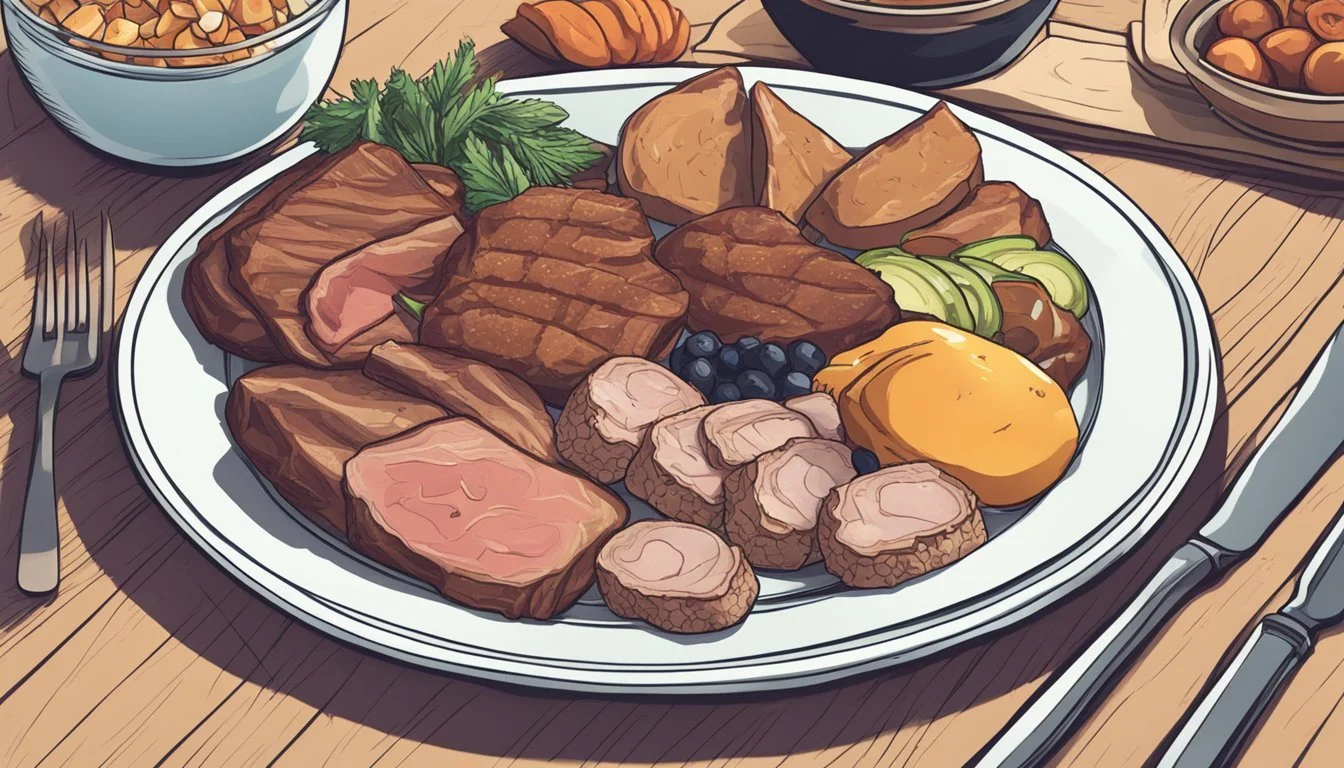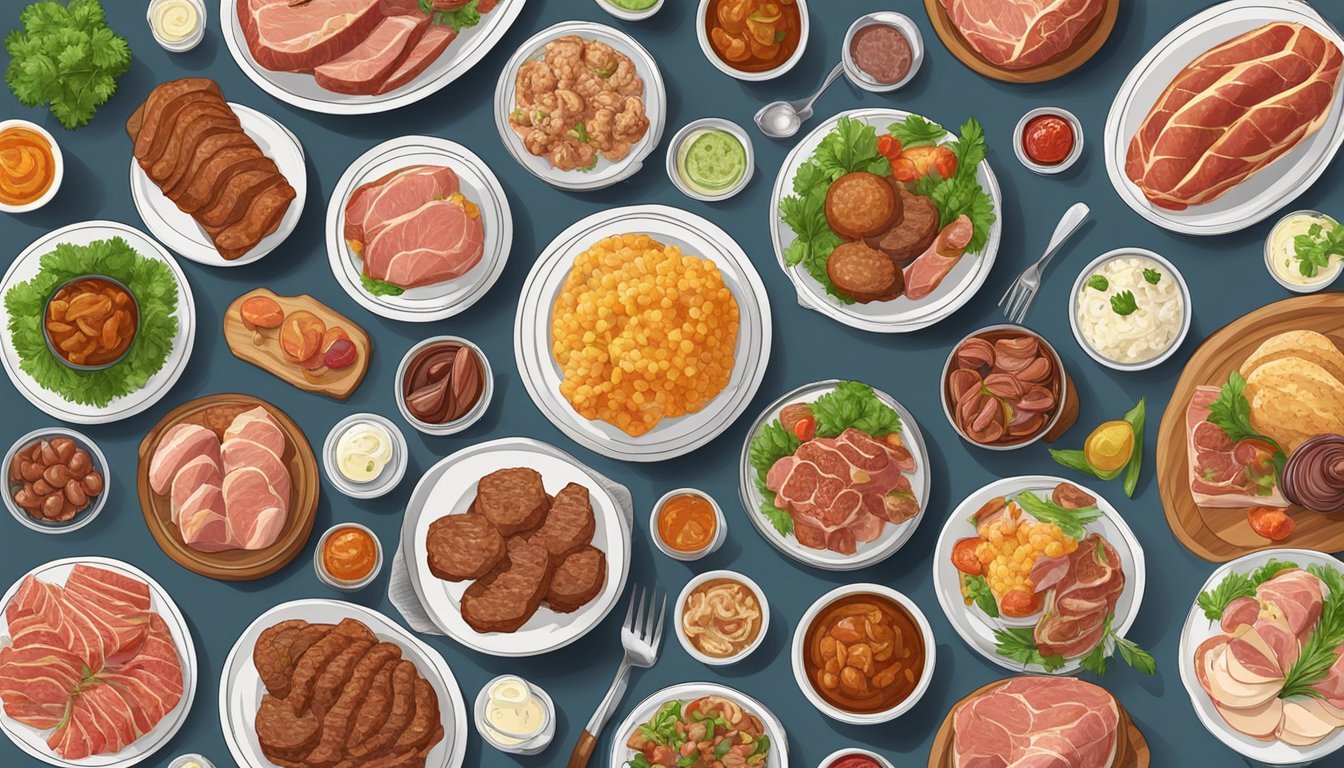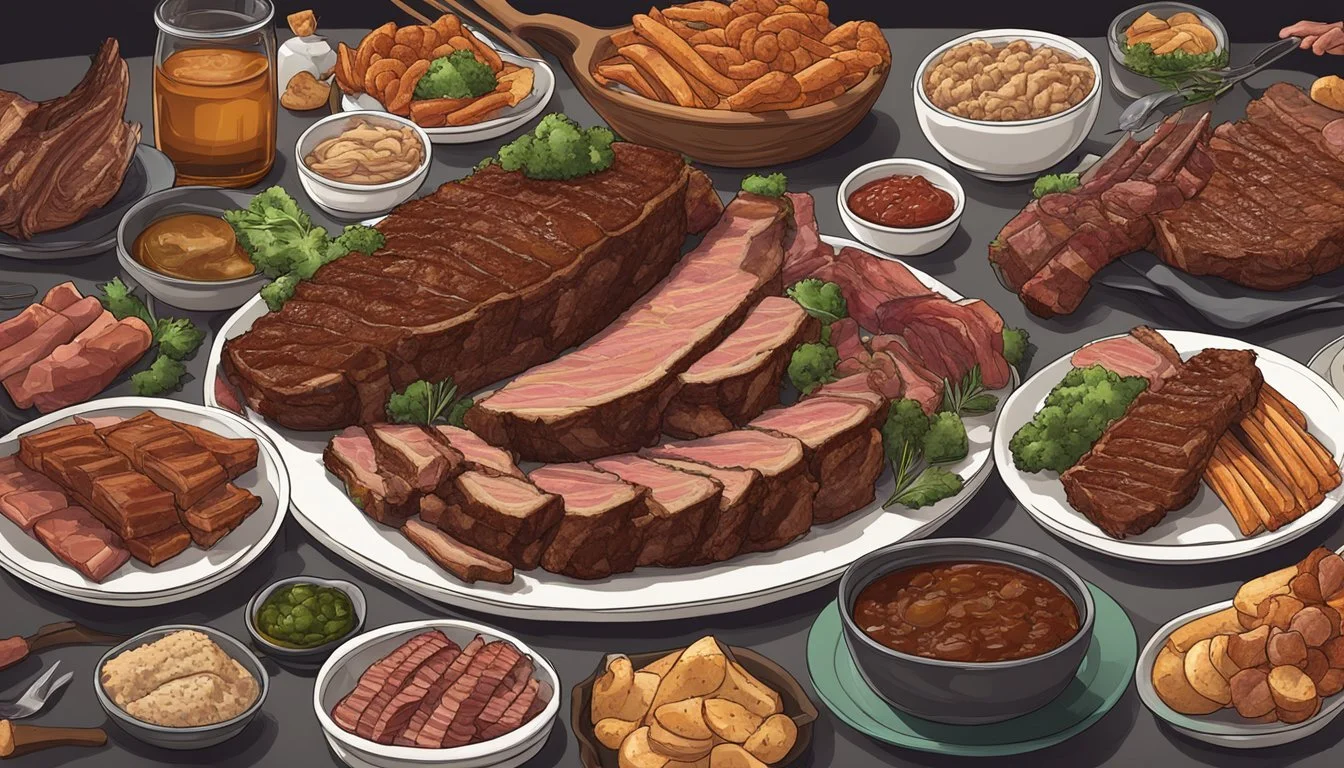Why Snacking is Unnecessary on a Carnivore Diet
A Clear Guide
Snacking often feels like a necessary part of many diets, but those following a carnivore diet may find it surprisingly unnecessary. The carnivore diet, which consists mainly of animal-based products such as meat, fish, eggs, and some dairy, provides nutrient-dense meals that keep you satiated for longer periods. This prevents the constant hunger pangs that typically drive the need for snacking.
Nutrient density in a carnivore diet ensures that your body receives all the essential amino acids and fatty acids it requires. High-protein and high-fat content in meals stabilize blood sugar levels, reducing the energy crashes that often lead to snacking. As a result, followers of this diet often experience increased energy and extended feelings of fullness.
Moreover, eliminating processed foods, sugars, and carbs helps minimize cravings that make snacking tempting. When you're consuming nutrient-rich foods exclusively, your body's needs are met more efficiently, making snacking an unnecessary habit. This leads to a more streamlined and potentially healthier way of eating.
Fundamentals of the Carnivore Diet
The Carnivore Diet centers on the consumption of animal products, excluding all plant-based foods. This nutritional approach emphasizes protein and fat intake from meat, fish, and certain dairy products.
Core Principles
The Carnivore Diet is based on the principle of eating exclusively animal products. It eliminates all plant-based foods, which include fruits, vegetables, grains, nuts, and seeds. The primary goal is to intake high levels of protein and fat while minimizing carbohydrates.
Adherents believe that this diet mimics the eating patterns of early human ancestors who primarily consumed meat. The diet operates on the philosophy that animal products alone can provide all essential nutrients. This approach is viewed as beneficial for reducing inflammation and supporting overall health.
Typical Foods Consumed
Common foods on the Carnivore Diet include meat, fish, and animal-derived products. Beef, pork, lamb, and poultry are staples. Fish and seafood such as salmon and sardines are also included. Eggs are often a significant part of the diet.
Certain dairy products like butter, heavy cream, and cheese may be consumed, though opinions on their inclusion vary among followers. The focus remains on nutrient-dense animal products that are rich in protein and fat, ensuring that all meals are both satisfying and nourishing.
Nutritional Profile of a Carnivore Diet
A carnivore diet emphasizes animal products, leading to distinct nutritional characteristics. It provides high levels of protein and fat, with significant amounts of essential vitamins and minerals primarily derived from meat, organs, and fish.
Macronutrients
The primary macronutrient in a carnivore diet is protein. Sources such as beef, chicken, fish, and eggs are rich in high-quality protein, which is essential for muscle maintenance and overall body function.
Fat intake is also crucial, with a significant portion coming from saturated and unsaturated fats. These fats provide energy and support cellular health. As the diet is devoid of carbohydrates, ketones produced from fats become the main energy source.
Cholesterol from animal products is a key component, influencing various bodily functions, including hormone production. Omega-3 fatty acids, predominantly found in fish like salmon and sardines, support brain and heart health.
Vitamins and Minerals
The diet supplies a wealth of vitamins and minerals. Vitamin D from fatty fish and organ meats supports bone health and immune function.
Iron, crucial for oxygen transport in the blood, is abundant in red meats. These sources provide heme iron, which is more easily absorbed by the body than non-heme iron from plant sources.
Calcium and magnesium from bones and organ meats are vital for bone health and metabolic activities. Potassium, found in meats, aids in muscle function and fluid balance. Liver and other organ meats are particularly rich in B vitamins, which support energy metabolism and neurological health.
Overall, while a carnivore diet may limit fiber and plant-derived nutrients, it offers a robust profile of essential nutrients critical for maintaining health.
Health Benefits and Risks
The carnivore diet has both supporters and critics, with potential health benefits and risks that are essential to understand for anyone considering this eating plan. It impacts various aspects of health, including weight, heart disease, and diabetes.
Possible Benefits
Weight Loss: Many advocates note that the diet can lead to significant weight loss. The high protein and fat intake often promote feelings of fullness, reducing the need for snacking and overall calorie intake.
Heart Health: Some claim the carnivore diet can improve heart health by reducing inflammation. Supporters argue that eliminating processed foods and sugars helps enhance cardiovascular function.
Diabetes: There is evidence that the carnivore diet may help manage type 2 diabetes. It can improve blood sugar control by minimizing carbohydrate intake and thus reducing insulin spikes.
Mental Health: Advocates also suggest benefits for mental health. Reduced sugar and carb consumption may stabilize mood and improve mental clarity, offering relief from depression and anxiety.
Chronic Conditions: Certain chronic conditions, such as autoimmune diseases and inflammatory bowel disease, may see improvement. The carnivore diet's anti-inflammatory properties are thought to play a role here.
Potential Risks
Heart Disease: Critics highlight the risk of heart disease due to the high intake of saturated fats. Consuming fatty meats can elevate cholesterol levels, potentially increasing the risk of heart attacks and strokes.
Nutrient Deficiencies: The diet’s restriction to animal products may lead to nutrient deficiencies. Essential vitamins and minerals typically found in fruits and vegetables, like vitamin C, fiber, and certain antioxidants, could be lacking.
Scurvy: There's a risk of scurvy and other deficiencies without adequate vitamin C intake. Fresh meat contains some vitamin C, but not in the amounts found in fruits and vegetables.
Cancer: High consumption of red and processed meats has been linked to an increased risk of certain cancers. Limiting variety in the diet may contribute to longer-term health issues.
Ketosis: While ketosis can be beneficial for many, it may cause problems such as keto flu, where individuals experience fatigue, headaches, and irritability during adaptation.
By covering these benefits and risks, one can form a more nuanced perspective on the carnivore diet's impact on health.
Make your life easier by ordering vitamin C and fiber supplement online; it's just a few clicks away!
Digestion and Energy on a Carnivore Diet
The carnivore diet primarily consists of meats and animal products, which play a crucial role in digestion and energy levels. Proteins and fats are the primary macronutrients, providing sustained energy without significant fluctuations.
High-protein foods support satiety and fullness. People often experience reduced hunger and a lesser need to snack. Fats contribute to long-term energy, helping maintain stable energy levels throughout the day.
Consumers of the carnivore diet can often experience better mood and mental clarity. Regular, nutrient-dense meals without processed sugars and carbohydrates help sustain balanced energy levels, which can positively influence mood.
Some may experience constipation initially due to the lack of dietary fiber. Including organ meats rich in vitamins and minerals can help mitigate digestive issues. Ensuring adequate hydration and, if necessary, a gradual transition to the diet can aid digestion.
Overall, the carnivore diet can lead to consistent energy and improved satiety, supporting stable mood and reduced digestive discomfort for many individuals.
Misconceptions of Snacking
Many people believe that snacking helps maintain energy levels and supports a healthy diet. These misconceptions stem from traditional dietary advice and marketing tactics that often emphasize the role of processed foods, sugar, and carbohydrates in snacks.
The Role of Snacks in Traditional Diets
In traditional diets, snacks are frequently recommended to keep hunger at bay and prevent overeating during main meals. Common snack choices include fruits, cookies, chips, and popcorn. These snacks often contain high levels of sugar and processed carbohydrates, which can lead to fluctuations in blood sugar levels.
Processed snacks are also rich in additives and low in fiber, resulting in limited nutritional value. Instead of aiding in weight control or health, these snacks can contribute to weight gain and poor nutrition. Snacks like yogurt, nuts, and tea are sometimes seen as healthier options, yet even these can be misleading if they contain added sugars or unhealthy fats.
Understanding the true nutritional content of common snacks highlights the potential harm rather than the benefits of frequent snacking.
Snacking Alternatives on a Carnivore Diet
For those following a carnivore diet, snacking isn't necessary due to the satiating nature of animal-based foods. However, should you find the need, there are specific strategies and options that align with the diet.
Acceptable Snack Options
For acceptable snacks on a carnivore diet, focus on nutrient-dense, protein-packed options. Beef jerky and biltong offer convenient and portable solutions, ensuring you stay full without resorting to non-carnivore ingredients.
Pork rinds are another favorite, providing a crispy texture with zero carbohydrates. Sardines and other oily fish, rich in omega-3s, make for quick and nutritious bites.
Eggs and cheese can also serve as suitable snacks, combining protein with essential fats. For those craving a different texture, beef sticks are highly portable and shelf-stable, ideal for quick consumption.
Meal Timing and Frequency
Timing meals strategically is crucial to minimizing snacking. Eating larger, protein-rich meals can sustain energy levels and curb hunger. Many carnivore diet practitioners find that intermittent fasting or eating fewer meals per day helps reduce the need to snack.
Regular, balanced meals every 4-6 hours work well for most people on a carnivore diet. Ensuring each meal contains high-quality sources of protein and fat helps maintain satiety, making it easier to skip snacks altogether.
By tuning into natural hunger cues and adhering to structured meal times, the reliance on snacks diminishes significantly.
Implementation Strategies
Implementing a carnivore diet involves strategic transitions and careful planning to ensure success. Focusing on transitioning effectively and planning meals can make adherence and convenience more manageable.
Transitioning to Carnivore
Transitioning to a carnivore diet is crucial, especially coming from a standard mixed diet. Start by gradually eliminating plant-based foods and increasing animal-based products. This eliminates potential digestive issues.
A phased approach is beneficial. For instance, begin by reducing carb intake, then cut out vegetables, and finally exclude dairy if it causes inflammation. Following influencers like Shawn Baker on social media platforms, including TikTok, can offer moral support and practical tips.
Expect some adaptation symptoms like fatigue or digestive changes; these are often temporary. Staying hydrated and ensuring adequate electrolyte intake helps alleviate these symptoms.
Planning Meals and Groceries
Effective meal planning and grocery shopping are paramount for a carnivore diet. Initially, focus on simple recipes: steak, eggs, and bacon are staples. Over time, experimenting with various meats and cuts can prevent monotony.
Creating a grocery list that emphasizes quality meats from reliable sources ensures nutrient completeness. Grass-fed beef, wild-caught fish, and pasture-raised eggs are preferable. Bulk purchasing can reduce costs significantly.
Incorporate organ meats like liver for essential vitamins and minerals. Utilizing social media for recipe ideas and preparation hacks can streamline cooking and offer variety. Preparing and packing meals for work or travel requires foresight but ensures adherence to the restrictive diet, mitigating the risk of non-compliance.
Carnivore Diet in Popular Culture
The carnivore diet has gained significant traction in popular culture over recent years. Individuals and influencers in the dietary world have promoted this all-meat lifestyle as both a health and lifestyle choice.
Social media platforms house numerous communities where enthusiasts share their personal journeys, successes, and tips. These online forums help in spreading knowledge about the diet.
Prominent figures like Shawn Baker play a crucial role in the diet's popularity. As a vocal advocate, Baker has written books and appeared in various interviews to discuss the health benefits he attributes to the carnivore diet.
Interestingly, comparisons with the ketogenic diet are frequent. While both emphasize high-fat and low-carb intake, the carnivore diet strictly permits animal products, unlike keto which allows some plant-based foods.
Bullet Points:
Strictly animal products
High-fat content
Excludes plant-based foods
Television and online media have also contributed to the diet’s reach. Documentaries and news segments frequently feature the all-meat lifestyle, often showcasing dramatic before-and-after stories.
Key Differences:
Carnivore Diet Keto Diet Animal products only Plant-based foods allowed Zero carb Low-carb
Despite the limited long-term scientific evidence, anecdotal reports and smaller studies suggest potential benefits. For instance, some participants claim significant weight loss and improved health markers.
The appeal lies not only in the health claims but also in the simplicity of meal planning, making it a preferred choice for those looking to eliminate the complexity of tracking macronutrients.
Carnivore Diet and Physical Activity
Physical activity and the carnivore diet can work synergistically to support overall health. The high protein content of the carnivore diet provides the necessary building blocks for muscle repair and growth. Protein is critical for maintaining and increasing muscle mass.
Regular exercise can benefit those on a carnivore diet by enhancing strength and improving cardiovascular health. Engaging in strength training helps maximize the muscle-building potential due to the diet’s rich protein intake.
Morning or afternoon physical activity can help regulate the circadian rhythm, promoting deeper and more restful sleep. Improved sleep quality enhances physical recovery, aiding muscle repair and overall wellness.
Combining the anti-inflammatory benefits of a carnivore diet with regular physical activity may support joint health and reduce exercise-related soreness. This can make it easier to maintain a consistent workout routine.
Incorporating various exercises, such as weight lifting, bodyweight exercises, and cardiovascular activities, ensures a balanced approach to fitness. This diversified routine supports different aspects of physical health:
Weight lifting for building muscle strength
Bodyweight exercises to enhance muscle endurance
Cardiovascular activities like running or cycling to improve heart health
This holistic approach helps leverage the protein-rich nature of the carnivore diet to optimize physical performance.
Overall, integrating physical activity with a carnivore diet can enhance muscle mass maintenance, strength gains, and overall physical well-being. Regular exercise complements the nutritional benefits of the diet, creating a robust foundation for maintaining and improving fitness levels.












